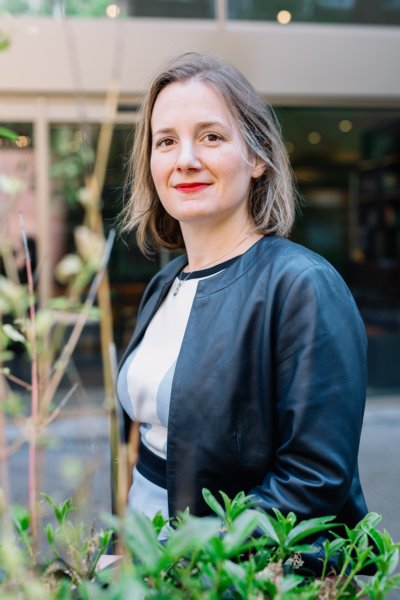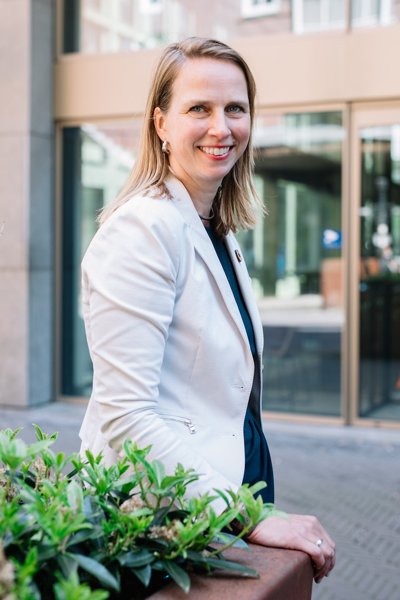The City of The Hague is collaborating with the 4TU Centre for Resilience Engineering to better prepare for the future. But what exactly is resilience, and what are the main challenges to address? How do you address these most efficiently? A conversation with two professionals: one from academia, and one from the City of The Hague.
Text: Nienke Beintema | Photography: Dieuwertje Bravenboer
Our world is changing at a rapid pace, presenting us with a range of increasingly complex challenges. Urbanization, population growth, socio-economic inequalities and climate change are placing greater and greater demands on politicians, city planners, civil society, and businesses alike to keep our planet liveable into the future.
“Our brains are not hardwired for this kind of complexity”, says Tina Comes, associate professor of Decision-Making & Information Technology for Resilience at the TU Delft. “Plus, there’s always the factor of uncertainty. We simply don’t know what’s going to happen.”
“That’s why resilience is so important”, adds Anne-Marie Hitipeuw, Chief Resilience Officer at the City of The Hague. “Are you prepared for shocks and stresses, can you overcome them, and learn from them?”
Anne-Marie: “As a city, we are working on maps that show the impacts of climate change, for instance. We do this together with the TU Delft. If you have a map of urban heat, you can overlay it with a map that shows where the most vulnerable people live, for instance elderly people. This allows us to focus our actions most efficiently. And we will develop a proof of concept of a model that combines flood risk with critical electrical infrastructure. This produces valuable insights into cascading effects. If there is a flood, and then an electrical outage, which other critical infrastructures will be affected, such as hospitals?”
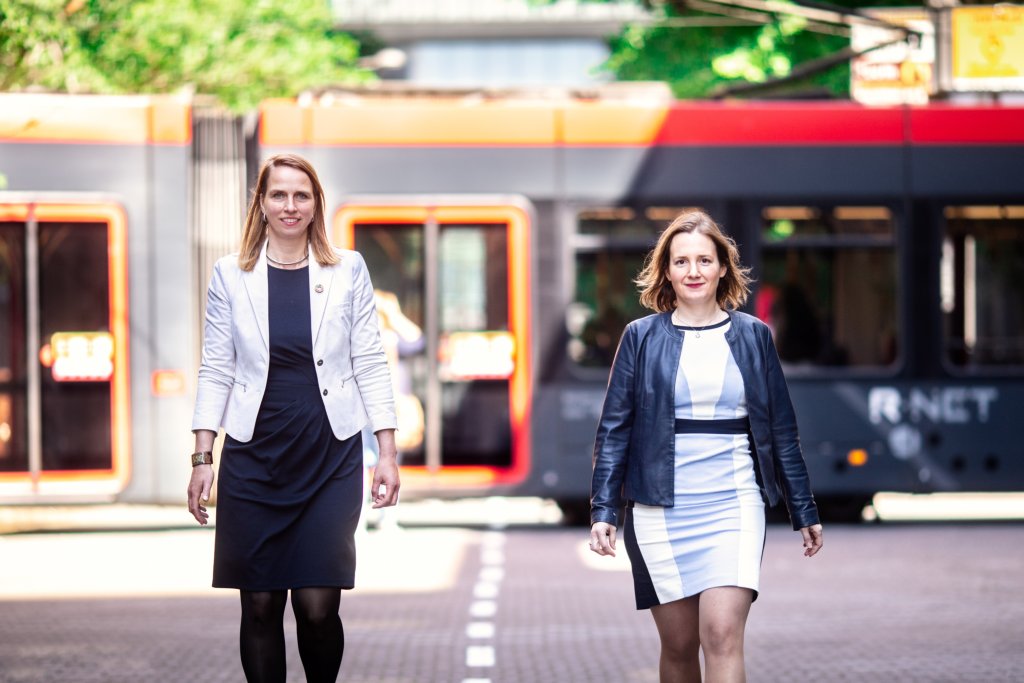
How do you make sure that the results of academic research actually reach practice?
Tina: “By working closely together. We are very happy with our collaboration with The Hague, for instance. It allows us to develop a good understanding of the concrete challenges and possible solutions. We held some matchmaking events between researchers and city professionals to discuss these challenges, which was extremely helpful. We need a mutual understanding – not just of the issues, but also of the way in which we work. How processes work in academia and in municipalities and public organizations. How the professionals in these environments react. It takes time: developing a mutual understanding of what we need from each other.”
What is the added value of the 4TU Centre for Resilience Engineering (4TU.RE)?
Tina: “The breadth of the challenges is incredible. You cannot solve them from a single scientific discipline. The 4TU.RE Centre gives us the capacity and the interdisciplinarity to address these challenges. Another important aspect is the longer-term commitment. The High-Tech for a Sustainable Future programme DeSIRE committed to tenure track positions for young talent, for instance, in order to build long-term capacity. This helps to shape the resilience agenda now and in future.”
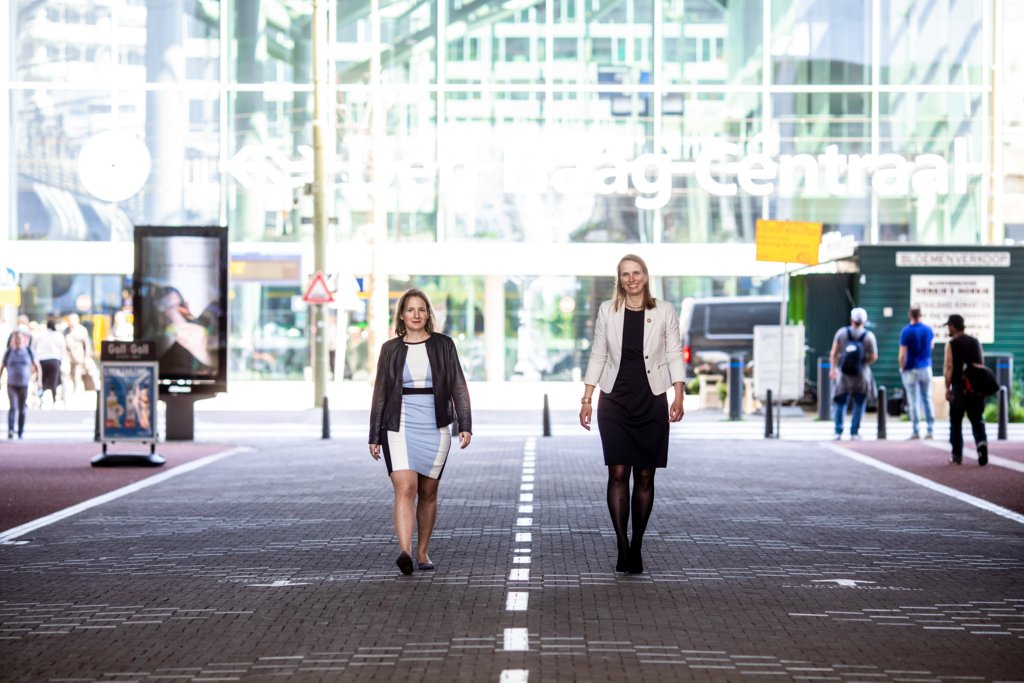
Anne-Marie: “For us, an important challenge is finding a place where our questions can land. If we need a cascading model, for instance, or a training course for strategy officers in municipalities, we can talk to the 4TU.RE Centre and they will find the right experts to help us. One of the Centre’s tenure trackers designed a resilience game, for instance, that we could use in a training programme. We had experience with developing resilience training courses; the tenure tracker had the scientific knowledge that was needed in the training. The benefits worked both ways: we got the help we needed and the researcher got a network to test the game.”
Tina: “This is a really important aspect of our collaboration. We need more insight into cascading effects, interdependencies and vulnerabilities in cities, and we can get this by working closely together with them. We can build on these partnerships and learn how to overcome barriers for cities, such as the required time commitment and their lack of data. In turn, we can give cities the means to push their resilience agendas.”
Anne-Marie: “Absolutely. It would be useful to use cascading models to show our city colleagues the cost of doing nothing – for instance, what it costs when heavy rainfall leads to power outage, which in turn may affect the continuation of vital infrastructure in the city. We prefer not to wait for a disaster, and make people more aware. This is a great added value of the 4TU network.”
How do you involve citizens in this process?
Tina: “This is also an area where the 4TU.RE Centre can step in. Co-creation together with citizens is key. We organized various ‘design and engagement’ projects to study how to best promote social cohesion, for instance: through storytelling, games, visualizations, apps, surveys – all depending on the scale of the intervention. We use those sessions to understand how people behave and interact – but also how to set up this co-creation process itself.”
Anne-Marie: “In the Netherlands, people tend to think: these challenges won’t affect us, the government will take care of everything. Within our resilience programme, we are working on risk communication. Risk dialogues are a vital part of our resilience strategy, and we also work on this issue together with researchers. In this regard, the connection with cities in the Resilient Cities Network is very powerful. Many cities in the world have much more experience on risk awareness among their citizens.”
Tina: “There is a lot of room for improvement when it comes to communication. Technology can play an increasing role. Cellphone-to-cellphone communication can help in case of a network outage. Artificial intelligence can help to find and reach the most vulnerable people, and to counter misinformation. Working together with The Hague is a wonderful opportunity in this regard.”
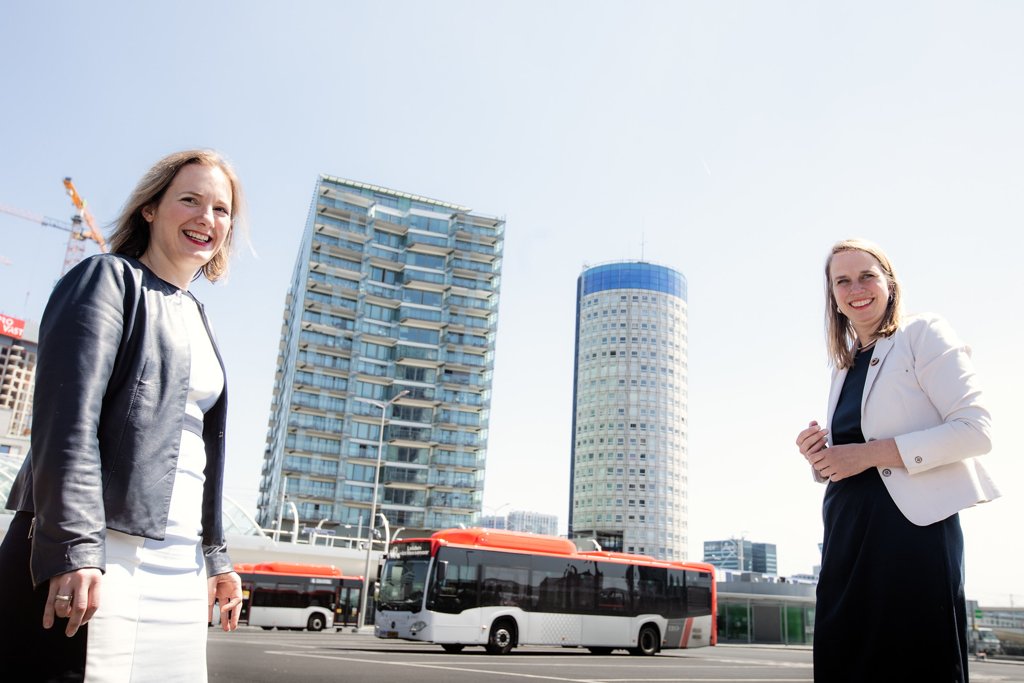
Which are the main challenges for the future?
Tina: “We can’t predict exactly what is going to happen with major trends like climate change and digitization. However, we can learn how to better plan for the long-term consequences of decisions, while also addressing short-term challenges. For instance by making consequences more transparent, sharing alternative solutions and scenarios, and learning from the way nature adapts to change.”
Anne-Marie: “Yes, nature-based solutions are becoming increasingly important. I always like to tell people about the Sand Motor project near The Hague. It is an artificial sand deposit, extending the coast, which allows researchers to study how winds, waves and currents can distribute sand along the Dutch coast. It is a very innovative form of coastal maintenance that helps us to adapt to sea level rise. It can also serve recreational purposes. All in all, the Sand Motor can be an inspiration for other cities worldwide.”
Tina: “This is a great example of collaboration between various research disciplines. But it also shows the importance of strong partners like The Hague. To become a resilient society, we need to understand how technology interacts with the socio-ecological environment.”




